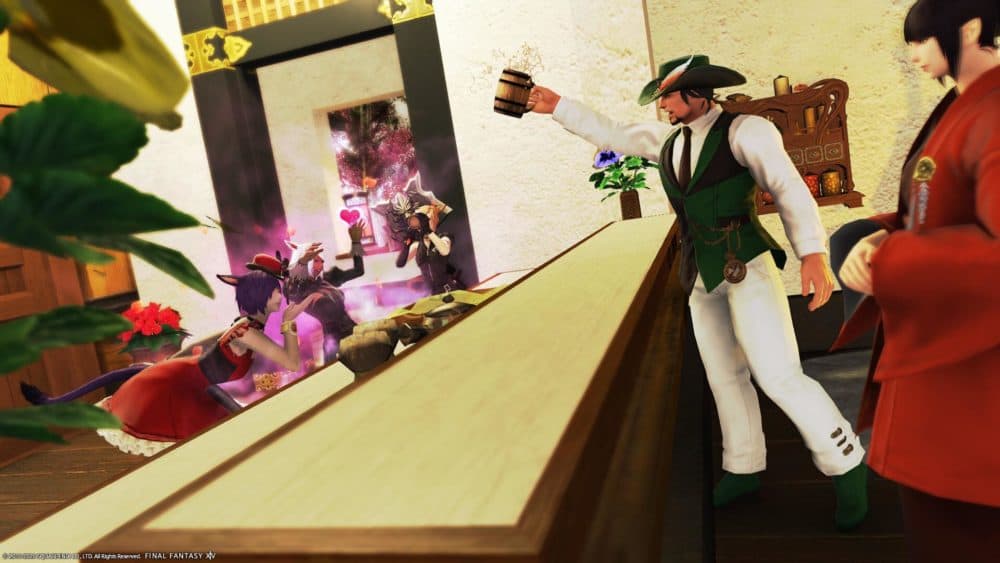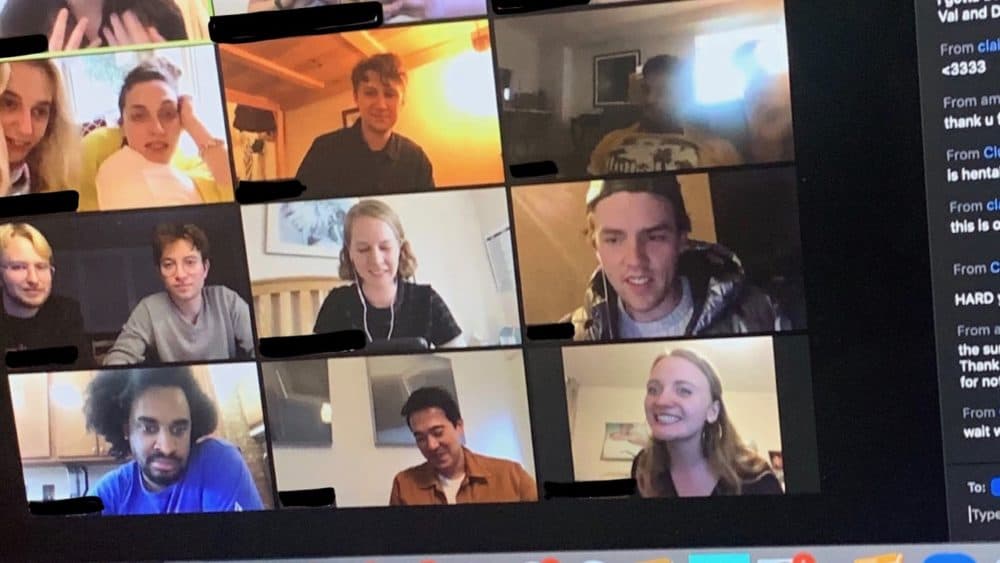Advertisement
How We Are Socializing In The Age Of Social Distancing
Resume
Boston University sophomore Kaitlyn Riggio was home in New Jersey for spring break when she received an email informing her that students wouldn't be allowed back on campus as a precaution against the coronavirus outbreak. Suddenly, she was faced with the prospect of not seeing any of her friends for the rest of the semester.
“So someone said as a joke, ‘Oh, we should do a virtual Warren Dining Hall,’ which is one of the main dining halls in the middle of campus where a lot of us tend to congregate,” Riggio said.
Now, in between online classes, Riggio and her friends meet for lunch most days on the video conferencing app Zoom. It's a way to maintain normalcy in an uncertain time.
“Right now everyone is kind of ... sad and kind of, like, not good, especially some of my friends who are seniors,” Riggio said. “But for the most part, people have been trying to make the best of a less-than-ideal situation. And we've been leaning on each other ... in our virtual dining hall and just our regular group chats and things like that.”
Game nights, knitting circles, play dates, cocktail parties: to stave off loneliness in the age of social distancing, people are finding all kinds of ways to socialize online.
Robert Carmona, of Hyde Park, used to attend a weekly Dungeons & Dragons meetup. After the coronavirus outberak, the group moved to Discord, a voice and text chat application popular among gamers. In some ways, the gaming community is better prepared for isolation than others. “A lot of people are kind of like, ‘Oh, I've been preparing for this all my life.’ Like, ‘Social distancing is what I do every day,’” Carmona said.
But many miss the in-person connection, and the casual socializing that comes with real-life meetups. Luckily, “the community is very, very creative,” Carmona said. On St. Patrick’s Day, a group of gamers he knew threw a virtual party on the multi-player video game Final Fantasy, their characters decked out in green and hefting mugs of digital beer.
But by far the most popular online social event — the one you’re likely to see people tweeting about — is the virtual cocktail party.
Valerie Hirschberg and Daniela Pedraza, of Cambridge, planned their first Zoom happy hour last week. Hirschberg, who teaches 8th grade, decided a PowerPoint was in order. “We just thought, with the number of people that we had attending, it would be good to have some activities,” she said.
On a Monday night in March — during what was, for many, the first week of isolation — 23 people joined Hirschberg and Pedraza’s virtual party. Friends called in from all over the country: New York, California, Idaho, St. Louis. There was one person in London and two in lockdown in France; some guests Hirschberg and Pedraza hadn't even met before.

To start, Hirschberg asked everyone to introduce themselves, and share how many extra rolls of toilet paper they had at home. (Anyone hoarding toilet paper was gently shamed.) Then it was on to a heated game of “Would You Rather?” (Example: Would you rather fight 100 duck-sized horses or a single horse-sized duck? Answer: “I feel like everybody loves ducks until you’re facing down a horse-sized beak, and then you want little horses you can kick!”) The evening concluded with a talent show.
Afterwards, the hosts were inundated with calls and texts.
“Val’s PowerPoint was perfect. The screen-sharing was seamless. The content was preposterous,” one guest wrote.
“I had like four or five FaceTime calls coming in at the same time and people just wanting to talk,” Hirschberg said. “I felt, like, definitely a serotonin rush after that.”
“On top of being a little tipsy,” Pedraza added.
No one would argue that a virtual party is better than the real thing. But Hirschberg and Pedraza might continue Zoom happy hours even after the crisis, as a way to stay in touch with far-flung friends.
And they'll definitely be doing it again soon.
This article was originally published on March 23, 2020.
This segment aired on March 24, 2020.
